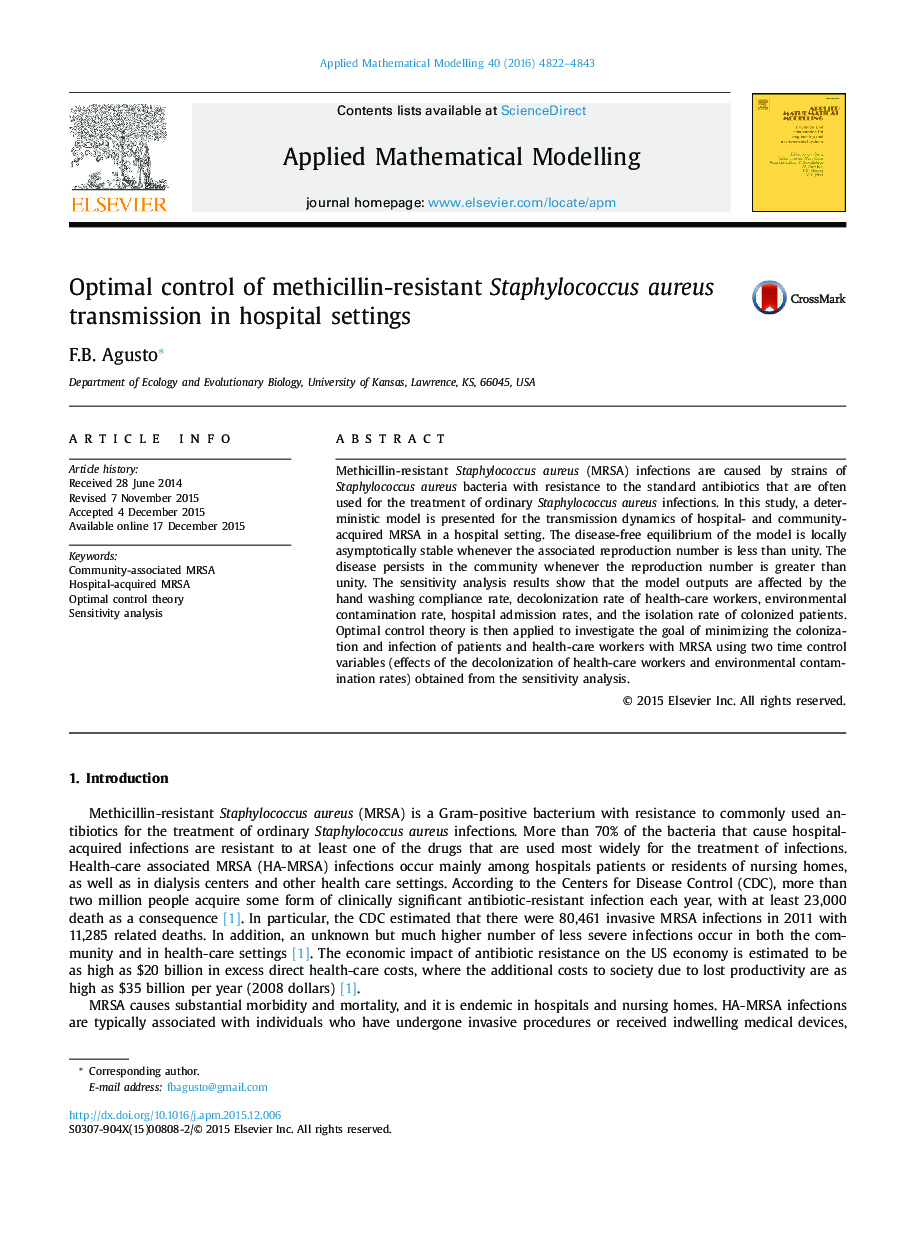| Article ID | Journal | Published Year | Pages | File Type |
|---|---|---|---|---|
| 1703125 | Applied Mathematical Modelling | 2016 | 22 Pages |
Abstract
Methicillin-resistant Staphylococcus aureus (MRSA) infections are caused by strains of Staphylococcus aureus bacteria with resistance to the standard antibiotics that are often used for the treatment of ordinary Staphylococcus aureus infections. In this study, a deterministic model is presented for the transmission dynamics of hospital- and community-acquired MRSA in a hospital setting. The disease-free equilibrium of the model is locally asymptotically stable whenever the associated reproduction number is less than unity. The disease persists in the community whenever the reproduction number is greater than unity. The sensitivity analysis results show that the model outputs are affected by the hand washing compliance rate, decolonization rate of health-care workers, environmental contamination rate, hospital admission rates, and the isolation rate of colonized patients. Optimal control theory is then applied to investigate the goal of minimizing the colonization and infection of patients and health-care workers with MRSA using two time control variables (effects of the decolonization of health-care workers and environmental contamination rates) obtained from the sensitivity analysis.
Related Topics
Physical Sciences and Engineering
Engineering
Computational Mechanics
Authors
F.B. Agusto,
